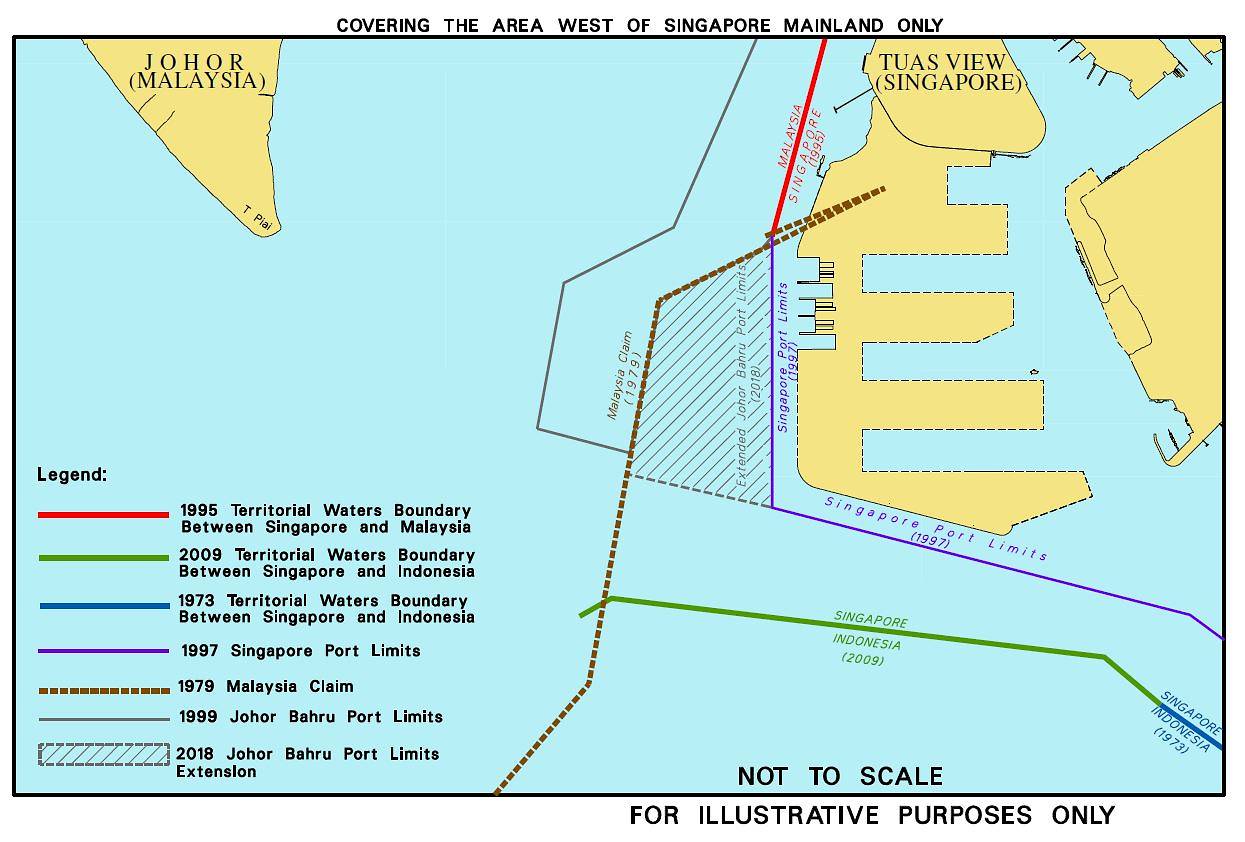SINGAPORE: Minister of Foreign Affairs Vivian Balakrishnan said that both Singapore and Malaysia must act in “good faith” to overcome the bilateral issues between the two countries.
In his ministerial statement in Parliament on Monday (Jan 14), Dr Balakrishnan said that despite these current difficulties, “Singapore still hopes to work with Malaysia for better relations, and closer cooperation that benefits both sides”.
“However, both sides must act in good faith, in compliance with international law and norms, and honour existing agreements,” he added.
Dr Balakrishnan also emphasised that he does not expect “a quick or smooth resolution to all these issues” but stressed that Singapore will do its best to discuss these issues with Malaysia in a “calm, reasonable, and focused manner”.
In his statement, Dr Balakrishnan went through Singapore’s stance in airspace, maritime and water disputes with Malaysia.
The maritime dispute was sparked by Malaysia’s unilateral decision to extend the Johor Bahru port limits in October, and the subsequent intrusion of Malaysian government vessels in Singapore waters.
Singapore lodged a “strong protest” with the Malaysian government over the port limits which it said encroaches into Singapore’s territorial waters off Tuas. It added in a media statement that Malaysia’s actions are “a serious violation of Singapore’s sovereignty and international law”.
READ: Singapore, Malaysia maritime dispute: A timeline
READ: Singapore extends port limits off Tuas, won’t hesitate to take action against Malaysia intrusions: Khaw
In Parliament, Dr Balakrishnan referred to a map shown on the screen, which reflects Malaysia’s “unilateral extension”.

(Image: MFA)
“The waters in that area are tight, at less than 24 nautical miles wide. This extension goes beyond even Malaysia’s own territorial sea claims according to its 1979 map, which Singapore has consistently rejected. The inescapable conclusion is that the new Johor Bahru Port Limits transgress into what are indisputably Singapore Territorial Waters,” he said.
He added that Singapore has long exercised sovereignty and patrolled these waters without any protest from Malaysia. But since late November 2018, he noted that Malaysian government vessels started intruding into these Singapore Territorial Waters.
“We have protested the purported extension and these intrusions,” he added.
Last week, Johor Chief Minister Osman Sapian made an “unauthorised visit” to Malaysian vessel Pedoman in Singapore waters. Singapore’s Ministry of Foreign Affairs called it “a provocative act” that went against the spirit of an agreement by both countries to resolve bilateral issues in a calm and constructive manner.
Dr Balakrishnan said Mr Osman’s “publicised visit” undermined the goodwill and trust necessary for further cooperation between the two countries, and “made it untenable” for Singapore and Malaysia to proceed with the Joint Ministerial Committee (JMC) for Iskandar Malaysia, which was scheduled for Monday (Jan 14).
READ: Johor Chief Minister’s ‘unauthorised visit’ to Pedoman vessel was ‘provocative act’: Singapore MFA
Dr Balakrishnan reiterated that Singapore “formally protested the intrusion” via a diplomatic note to Malaysia and proposed to postpone the meeting to a later date.
However, he stressed that his discussions with both Malaysian Minister of Foreign Affairs Saifuddin Abdullah and economic affairs minister Azmin Ali, both before and after Mr Osman’s actions, have been amicable and constructive.
“Minister Azmin met me yesterday. He also met Ministers Khaw Boon Wan and Lawrence Wong today, to discuss several bilateral projects which he is in charge of,” said Dr Balakrishnan.
On the dispute on the airspace over southern Johor, Dr Balakrishnan noted that the Instrument Landing System (ILS) procedures for Seletar airport imposes no additional requirements or limitations preventing Malaysia from developing tall buildings in Pasir Gudang, or operating tall ships in Pasir Gudang Port.
READ: Singapore, Malaysia airspace dispute: What we know and timeline
READ: Flight procedures for north, south approaches to Seletar Airport are necessary: MOT
In December, Malaysian Transport Minister Anthony Loke had posted a video on his Facebook page showing that the flight path to Seletar Airport requires a height buffer of between 54m and 145m.
In his statement, Dr Balakrishnan said: “There were allegations that Pasir Gudang will not be able to have buildings taller than five stories because of ILS, but if members cross the Causeway and drive around Pasir Gudang, you will see that there are in fact already structures as tall as 105m there.”
Dr Balakrishnan also presented a satellite photograph, “obtained from open sources”, depicting that there are indeed several existing high rise developments in the Pasir Gudang area.

(Image: MFA)
“The ILS has not and will not prevent the building of tall structures as alleged by Malaysia. And we have consistently stated that if Malaysia has any new plans for developments, we are prepared to discuss and adjust the ILS procedures if necessary,” he added.
TWO AGs MET TO DISCUSS PRICE OF RAW WATER
Another matter raised by Malaysia recently was the price of raw water it sold Singapore under the 1962 Water Agreement, Dr Balakrishnan said.
Prime Minister Mahathir raised this with PM Lee when they met last November. Dr Balakrishnan said that the two leaders agreed that the Attorneys-General (AG) from each country would meet “for discussions to better understand each other’s positions”.
Dr Balakrishnan revealed that the two AGs subsequently met in December but their discussion was overshadowed by the new issues that had arisen over the Johor Bahru Port Limits and Seletar ILS procedures. He maintained that the pair “will meet again to continue their discussions”.
In concluding his speech, Dr Balakrishnan said the strength of Singapore’s diplomacy depends on “domestic unity and resilience, and the fact that we cannot be intimidated or bought”.
“This is the foundation for our diplomacy as we seek good relations with all our friends and neighbours within a rules-based international order,” he said.




